“I born and grew at this place. I have been living here for the past 40 years,” Veronica Gravesande said during an interview with Stabroek News. The “place” she is referring to is a community whose peace is only shattered by the vehicles traversing the public road. It is an exemplary rural Guyanese community, laid back most times, but still springing to life at intervals. This is the East Bank Demerara village called Garden of Eden.
Home to approximately 700 people of Indian descent, the village covers a 100km2 area. It is also home to a few Amerindians who migrated from the North West from communities such as Tumatumari.
Most of the residents said that they believe the village was given the name Garden of Eden because of the bountiful fruit trees which used to grow there some of which can still be seen today. Other residents suggested that the village acquired its name because of the peace and silence which surround it.
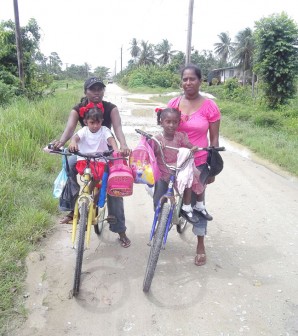
During a midday visit by SN the air was very cool because it appeared that it had been raining earlier in the day. Ms Gravesande, the first woman to greet this newspaper was returning home from school with her daughter. She related that back in the day there were no roads in the community, so residents were left with no alternative other than to walk through the mud. She said, “Here was very muddy; vehicles couldn’t even come in, the mud used to reach me till at me knee.”
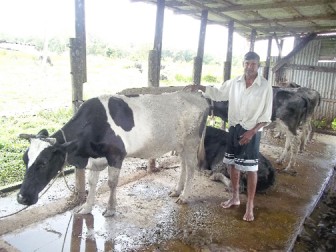
The woman related that back then she was a chef but decided to resign and is now a stay-at-home mom. Daily activity for her commences as early as 5 am. She rises at that hour in order to prepare her daughter‘s breakfast and take her out with the bicycle to the Supply Primary School. There are no schools in Garden of Eden itself, and students have to attend school in neighbouring communities.
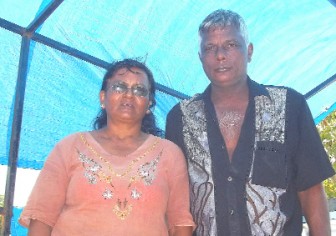
For Gravesande, transportation seems to be the major problem, since otherwise she was content with the conditions and the life that she lives in Garden of Eden. “It does be really hard to get bus to take you where you want to go… But here things nice and life simple… you have so much of land space but you just have to know how to make yourself happy and comfortable.”
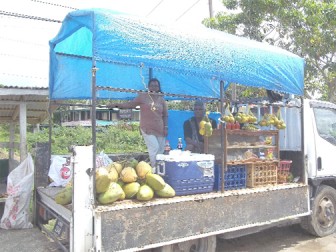
After leaving her home SN met one of the oldest residents in the village. Bissoondial Boopat also called ‘Milkman‘ is known to many in the village. The cattle farmer related that he has been living there for the past 50 years. To him Garden of Eden is the most beautiful and the quietest village along the East Bank.
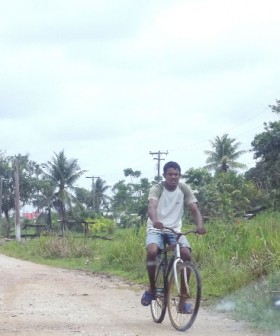
Reflecting on the past, he reminisced that the area was like a “paradise.” He said “back then people used to come and pick orange, cherries, cashews… and eat until de belly full… de place was so beautiful.” Boopat said that he also picked the fruit and later vended them occasionally at the Kitty market. “I was a cane farmer,” he told this newspaper, “that was a popular job in Garden of Eden, but that was many years ago.”
Today he is involved in cattle-rearing and now has a large livestock farm. Occasionally, like many of the villagers, he is also involved in poultry-rearing. He said, however, that these forms of livelihood were very difficult and that it was sometimes discouraging, especially when the rain falls for a very long period. “I lost plenty animals when de rain fall… de [cows] does die up in de mud,” he said.
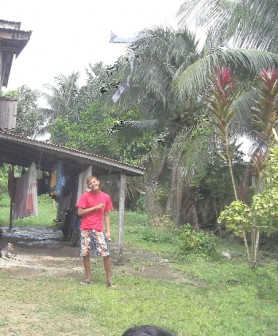
His day begins at 5am and sometimes earlier, when he gets up to attend to the animals and milk the cows. He sells the milk in the village and along the East Bank. Boopat related that he has been vending cow‘s milk for a very long time, which is how he acquired the moniker, ‘Milkman.‘ He said that he enjoys what he does and where he lives since there is enough land space for his cattle farm. “I love agriculture,” he continued, “I have been doing this as long as I could have remembered… the part that I like the most is to watch me calves them grow… it does really make me happy.”
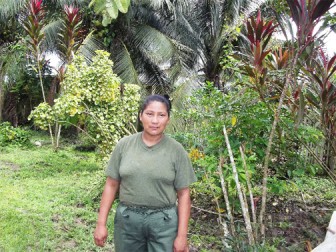
Boopat explained that the villagers obtained the land from the colonial government in 1959 and the villagers converted the area to housing lots. During those days he said, they were required to pay an annual rent for the land. “We de get de land free so we just had to pay a rent year end… but we get the lease for de lands so we dont gotta pay no rent, just de tax.” After the interview, the man took Stabroek News on a tour of his farm so we could see the chickens and cows he rears.
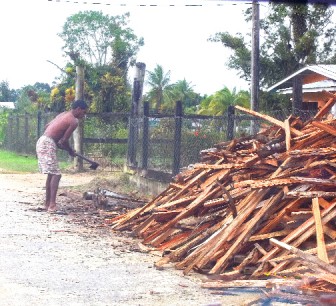
At the other end of the village this newspaper met Eugennie Thomas, a member of the Guyana Defence Force who works at the GDF farm located in the area. According to Thomas, most of her time is spent at work; however when she returns home she is engaged in looking after her kitchen garden where she plants various vegetables for her personal use. The woman said that the cost of living is very low in the community and she too praised the availability of land.
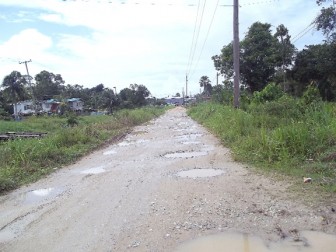
“I does plant a little of shallot, pepper, tomatoes… this helps me to cut down on the expense of buying it in the market,” she explained. Thomas said that even though the GDF farm is located in the area only a few villagers seek employment there.
SN was told that most of the residents are self employed and are engaged in cattle- rearing, poultry-rearing and horticulture. A few of the people are miners who are employed in the interior. The nearby Gafoors Ltd at Land of Canaan also employs some of the villagers.
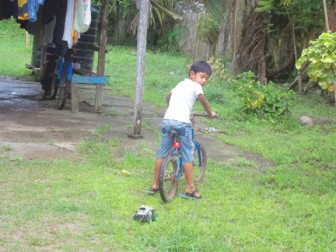
When in need of medical attention the residents go to the Diamond Diagnostic Centre because there is no pharmacy or health post in the village itself. When asked about crime, the residents responded, “Here we don’t get any problem… you can leave you house open and go out.” The most recent crime which occurred, some of the residents mentioned, was a robbery in the community’s only shop. “De go into de people shop and thief up a set of money… de also tie up de lady and she son” some of the residents said.
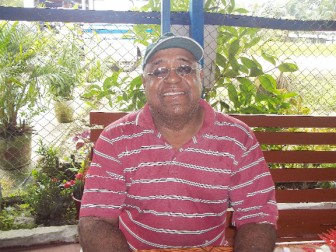
Stanley Mohabir, a resident who has been living in Garden of Eden for the past 15 years told SN, “When people ask me where I live I tell them that ‘I live in Garden of Eden… next to Adam and Eve.’“ Mohabir who is a retired fisherman and mechanic said that he migrated to the United States for several years but in spite of the many attractions that America has to offer he returned to his homeland because he is “in love with [his] community.” Weekdays for him are spent managing his grocery shop, while at weekends the dominoes‘ competition comes alive as some of the youths in the village go there to play. He noted, however, that nowadays things have changed, since the youths are rarely involved in sports. “Some weekends they use the streets to play cricket… but they hardly does this.”
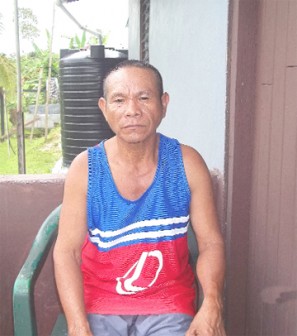
SN was told that there isn’t any recreational activity in particular that the young people get involved in and that they go to other communities to hang out. Mohabir concluded that one of the things that he will forever cherish about living in Garden of Eden is his memories of the past: “It had days when I walking home in the nights I saw many snakes crawling along the dams… the large orange farms that people feasted on… This place has a memorable past that I can tell even the generations to come.”




